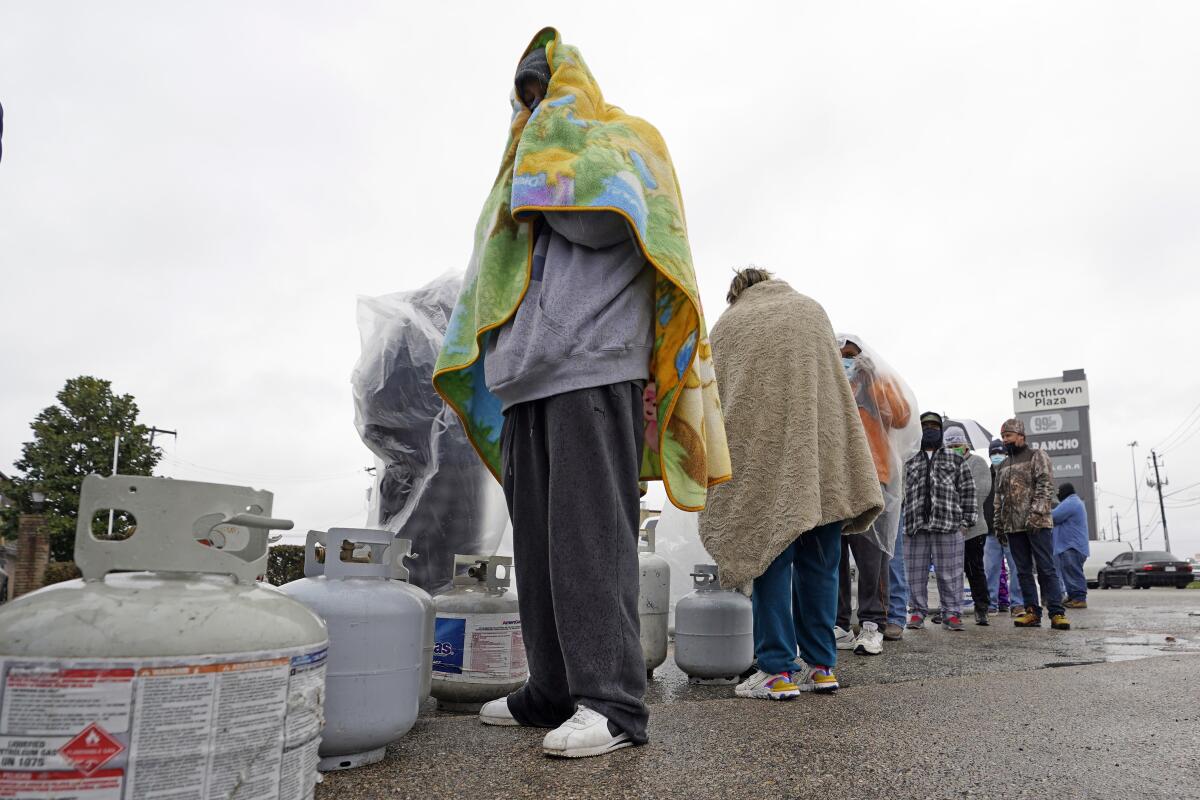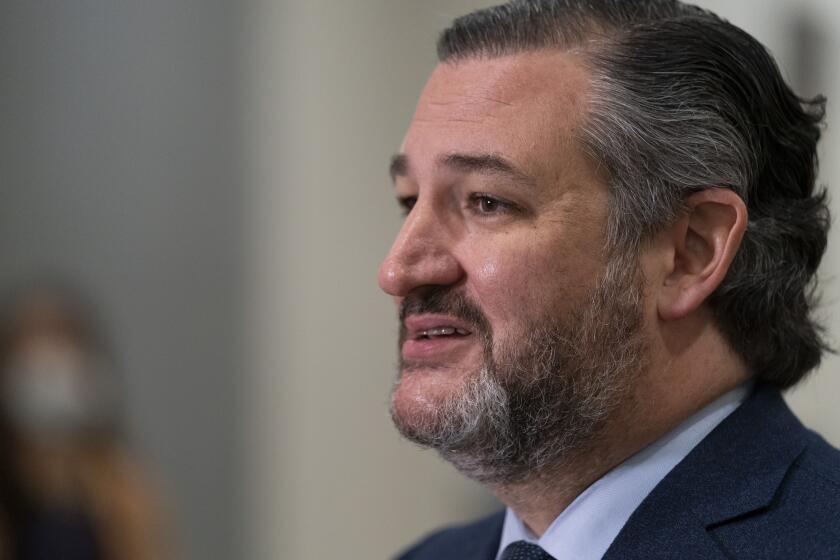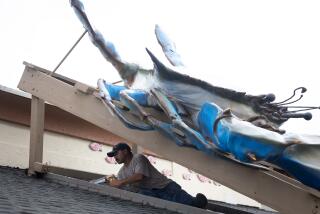Texas governor’s biggest donors: Energy industry that failed

- Share via
AUSTIN, Texas — As frozen Texas reels under one of the worst electricity outages in U.S. history, Republican Gov. Greg Abbott has blamed grid operators and iced-over wind turbines but has gone easier on another culprit: an oil and gas industry that is the state’s dominant business and his biggest political contributor.
And as the toll deepened Friday from a week of historic winter storms, which have killed more than 20 people in Texas, the dog- piling on a power grid that is isolated from the rest of the country ignores warnings known by the state’s GOP leaders for years.
“It’s almost like a murder suspect blaming their right hand for committing the crime,” said Democratic state Rep. James Talarico. His suburban Austin home lost power for 40 hours and had no working faucets Thursday, when roughly 1 in 4 people in Texas woke up under instructions to boil water.
Talarico’s power, like that of most of the state’s 30 million residents, is controlled by grid managers at the Electric Reliability Council of Texas, known as ERCOT, which Abbott again laid into Thursday after more than 4 million people at one point were enduring outages in subfreezing temperatures.
But that is not where the responsibility ends, as power plants that feed the grid were knocked offline by the extreme cold, and natural gas producers didn’t protect wellheads from freezing. “ERCOT is a convenient whipping boy,” Talarico said.
The crisis has put the fossil-fuel industry that lavishes the Texas Capitol with money in the crosshairs in ways that Abbott has not had to navigate when steering America’s second-largest state through other disasters, including hurricanes and the ongoing pandemic. For the first time Thursday, Abbott called on Texas to mandate that power plants be winterized.
Texas Sen. Ted Cruz acknowledged he traveled to Mexico for a vacation, leaving his home state as many struggled without power or safe drinking water.
Oil and gas built and enriched Texas, and with that its politicians, including those who became president.
But none has reaped campaign contributions on the scale of Abbott, who in six years in office has raised more than $150 million from donors, more than any governor in U.S. history.
Texas’ energy interests are the biggest backers of his political rise, and he has not ruled out a White House run in 2024. More than $26 million of his contributions have come from the oil and gas industry, more than any other economic sector, according to an analysis by the National Institute on Money in Politics.
As Texas’ grid first began buckling early Monday, Abbott drew backlash after going on Fox News and laying fault on solar and wind producers, at a time when natural gas, coal and nuclear energy systems were responsible for nearly twice as many outages.
Pressed on those comments later, Abbott took a softer tone and acknowledged every source of power had been compromised.
ERCOT is overseen by the Texas Public Utility Commission, whose three members are appointed by Abbott. While ERCOT manages most of Texas’ power grid, the commission and the Texas Legislature make key policy decisions that have factored into the ongoing crisis.
After the state’s last major freeze, during the 2011 Super Bowl held in Arlington, a federal analysis found that energy producers’ procedures for winterizing their equipment “were either inadequate or were not adequately followed” in many cases. The report repeatedly cites another Texas freeze, in 1989, as a clear warning.
Girding power generators against fierce winter weather is essential in colder climates.
In Iowa, where wind farms supply 40% of the state’s electricity, windmills have been turning all week despite temperatures that dropped to minus-17 degrees in Des Moines.
A decade ago, the report on the last Texas failure lists a number of ways to winterize an oil well or a natural gas device and the estimated costs: installing a cold-weather production unit ($23,000), collecting gas vented from an injection pump to supply a heater ($675), or building a fiberglass hut to enclose the production equipment ($1,500).
Winterizing 50,000 wells — just under a third of the number of total natural gas wells active in Texas — was estimated in 2011 to cost as much as $1.75 billion, a figure that would almost certainly be higher today due to inflation. By comparison, the Texas oil and natural gas industry paid $13.9 billion in taxes and royalties last year alone, according to figures from the Texas Oil & Gas Assn.
Republican Ryan Sitton, the former commissioner of the Texas Railroad Commission that regulates the state’s oil and gas industry, said an issue with bolstering power plants is the cost passed on to electric customers. Of Abbott’s focus on ERCOT, Sitton said, “Calling for an investigation is easy. Actually performing a good investigation and taking ownership of the results is where the rubber meets the road.”
He said oil and gas interests, which generously funded his own political campaigns, don’t hold the sway the public imagines.
“They make donations, sure. But unless the entire energy industry is speaking with a unified voice, which almost never happens, there’s not that much influence,” Sitton said.
More to Read
Sign up for Essential California
The most important California stories and recommendations in your inbox every morning.
You may occasionally receive promotional content from the Los Angeles Times.











